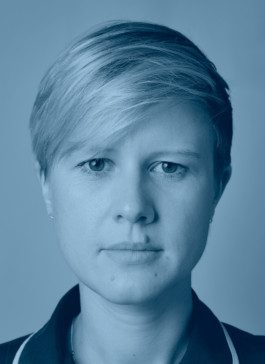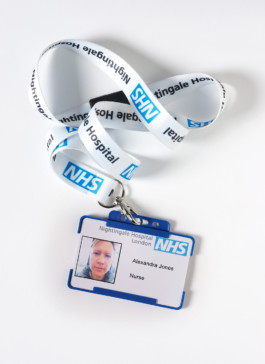Alex: “Just knowing that my loved ones had faith in me, that’s what kept me going”


listen:
Photography: Lottie Davies
Audio Producer: Nada Smiljanic
read:
Working in the Nightingale, you couldn’t take any personal items in with you because of the infection control measures. My Nightingale Hospital lanyard was really one of the only items I had on me. I just felt very proud to be given it because we were all aware that what was happening and what we were doing there would be a significant part of our lives and a significant moment in history.
My name is Alexandra Jones, and pre-Covid my job was working as a Nurse Practitioner in a Walk-in Centre in North London.
I can’t remember the exact date I became aware of Covid. The start of this year all seems like a blur. But when it was confirmed in England it became very apparent that things were going to change. The lockdown came into place, and the number of attendances at the Walk-in Centre rapidly dropped. So the decision was made that anyone who didn’t have an underlying health condition who wasn’t at high risk would be redeployed. It felt right to go where my skills could be best used. And that, in the first instance was a ward for anyone that had Covid but wasn’t acutely unwell. We didn’t have people who were on ventilators – it wasn’t an intensive care unit.
I remember it very clearly, we all were told at the start of a shift ‘We are receiving this patient and they’ll be going into this room’. And the room they were going into was one of the rooms that had been allocated to me on that shift. And I remember that we had all the PPE set up on a trolley, we were all aware of what we would need to do, how to put the PPE on and off, and washing our hands and using the alcohol gel. But to actually put that PPE on for the first time was very daunting. Usually in nursing, you used evidence-based practice. But with Covid, you didn’t really know how things could progress and it felt awful, because there was a vulnerable person in a room, alone, reliant on the team going in to help them. So we had to try not to demonstrate to the patient how scared we were.
I spent three to four weeks initially on the ward, but my Trust sent an email and said that they had been asked to send people to the Nightingale. The Nightingale was a field hospital set up at the Excel Exhibition Centre. Its aim was to provide intensive care treatment where the capacity of established hospitals couldn’t meet the demand. The email was very clear, it just said, if you would be willing to go, please reply with your details. And I thought again, I’m young, I’m healthy, I would probably be a good candidate. So I replied to the email. After a couple of days or so my manager said that I had been selected. That was one of the most challenging parts really, knowing that I would be going there but not knowing when. Each day waiting for them to call me or email me. Although I had volunteered, I didn’t know exactly what I had volunteered for. And I wasn’t certain what would be expected of me. When I’d heard when my first shift would be my brother sent me a message saying ‘You are braver than you believe, stronger than you seem and smarter than you think. Just keep pushing on and thinking positively’. I just kept thinking back to that when I was feeling nervous. Just knowing that my loved ones had faith in me. That’s what kept me going.
The hospital: it was just very vast, bigger than an aircraft hangar. With strip bright, white lighting. No windows. It was quite echoey and, wearing all the PPE, you had to get quite close to your colleagues to be able to speak to them and hear them. We were taught hand signals like you’d use scuba diving.
It was also very tricky because you can’t recognise people very easily. You’ve got a hairnet on, a visor, a mask, scrubs, so you ended up recognising people from a distance perhaps by their height or the way they walk. When you were in the unit, looking around, you would just see a sea of blue people of different heights and sizes. We didn’t even know each other, we were individuals from hospitals all over London, but we came together. And that was one of the best things. Everyone was there with the joint aim of doing their best.
I would have one patient per shift, and that patient was on a ventilator, in a medically induced coma; they were asleep. But because they’re so acutely unwell, there were many tasks that you had to do, administering their medication, taking blood samples, washing and turning the patients. The family liaison department had given family members cards on which they could write notes to their loved ones. We would refer to these notes to talk to the patients. It’s so important to still treat them as you would want your family member to be treated if they were lying there in that bed.
There were some very sad times where people passed away. That was very difficult, not being able to sit with a relative and explain what’s happened face-to-face. I had been working in the Walk-in Centre for two and a half years. I hadn’t seen people dying since I was in A&E. So it brought back a lot of sad memories of that as well. It was very hard to suddenly be facing death again.
So after the Nightingale, I told my manager that I was back and had been stood down. I then received a call from the Deputy Director of Nursing who told me that there was a hotel in South London, where people experiencing homelessness had been housed temporarily in order for them to shield from Covid. This hotel in particular was called a ‘Protect Hotel’, because everyone in the hotel also has an underlying medical condition which makes them even more vulnerable to Covid. So he asked if I would go there to be the on-site nurse, again, I said ‘I’ll go and try’.
I went from working at a Walk-in Centre in a hospital, to a ward in a hospital, to an intensive care unit, to suddenly my office is a hotel room with a bed in the corner and an ensuite bathroom and a wardrobe. I never foresaw that in my nursing career I’d be based in a hotel, but my experience there has been so positive.
The majority of these patients, I’ve gotten to know their stories, heard how they’ve ended up in the situation they are. These people have been through so much trauma in their life, they’ve had so much misfortune, and that is why I’ve found it so rewarding to be able to support them.
It’s when this eventually is all over that I think it will really hit. That’s when we’re going to be able to sit and look back at what we’ve been through.
And we’re going to need a lot of time. I don’t think I’ve had a chance to fully process it yet.
An Empathy Museum project made with the support of NHS England and NHS Improvement, The Health Foundation, and Arts Council England